What is the Connection Between Chemotherapy and Hearing Loss?

The journey through cancer treatment is a challenging one. Chemotherapy, while a powerful tool in the fight against cancer, often comes with a host of side effects. While you may have heard about the hair loss and nausea associated with treatment, hearing loss is a less discussed but notable side effect. Let’s explore the connection…
What Are the Benefits of Embracing Hearing Aids Young?

When you picture a person wearing hearing aids, you are likely picturing someone in their late 60s and 70s. While it’s true that one in three people aged 65 to 74 have hearing loss, it may not be as uncommon in young people as you think. The National Council on Aging released statistics defining the…
What To Know About Presbycusis
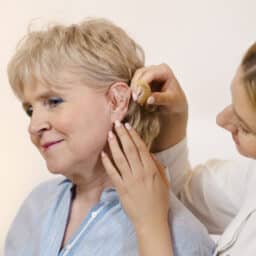
Presbycusis, or age-related hearing loss, is a condition that gradually affects one’s hearing capabilities in both ears due to aging. This form of hearing loss is the most prevalent globally and is estimated to affect around two-thirds of Americans aged 70 or older. The condition primarily impacts an individual’s capacity to comprehend high-frequency speech sounds,…
Three Unexpected Benefits of Hearing Aids

Currently, 20% of the global population is living with some degree of hearing loss. Hearing loss can adversely impact stress levels, relationships, work performance and more. Hearing aids can compensate for the loss and mitigate the adverse side effects. With all the benefits of the devices, it may come as a surprise that it takes…
What Are Some Common Causes of Pediatric Hearing Loss?
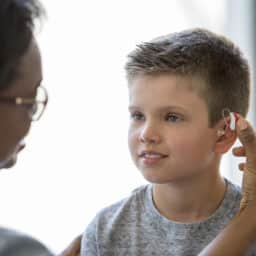
Approximately one to three per 1,000 children have hearing loss. Causes of pediatric hearing loss are generally separated into two categories: Let’s examine a couple of examples of each of these more closely. Congenital Causes of Pediatric Hearing Loss Congenital causes of hearing loss are those causes that are present at birth. They may include…
What You Should Know About Asymmetrical Hearing Loss
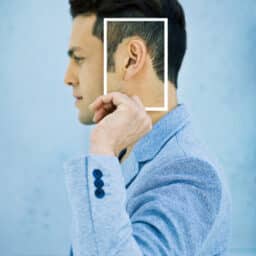
“Asymmetrical hearing loss” refers to hearing loss that affects one ear more than the other. In this post, we review the signs, causes and treatments of asymmetrical hearing loss. The Signs of Asymmetrical Hearing Loss If you have asymmetrical hearing loss, you will probably find yourself sitting so your “good ear” is closer to a…
Cochlear Implants
There are several types of hearing devices that may be used to treat hearing loss. The device recommended by an audiologist is selected based on the severity and type of a patient’s hearing loss. One specific type of surgically implanted hearing device is the cochlear implant (CI). Cochlear implants have an internal implanted portion that…
Giving the Gift of You

With passing of the Christmas season, many gifts have been given and received. One gift that often isn’t thought of, is the gift of you! In a day and age with hustle and bustle, busy schedules, work, play, and social media, just being present can be one of the biggest gifts. But, if you are…
Hearing Aids Can Help
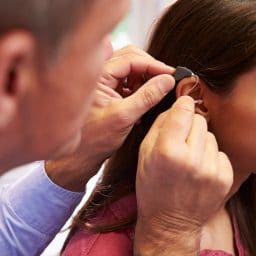
If you are one of the 48 million Americans affected by hearing loss, there are many options of treatments for hearing loss, and many types of hearing devices. For people suffering from sensorineural hearing loss, hearing aids can help! Unfortunately, according to the Hearing Loss Association of America, only about one out of five people…
Types of Hearing Devices
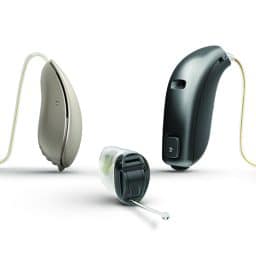
In most situations, the treatment for permanent, sensorineural hearing loss is a digital hearing device. Hearing devices can range from extremely tiny devices that fit completely inside the ear canal, to devices that are placed externally behind the ear and deliver sound into the ear canal via tubing and an earmold or a receiver. Hearing…